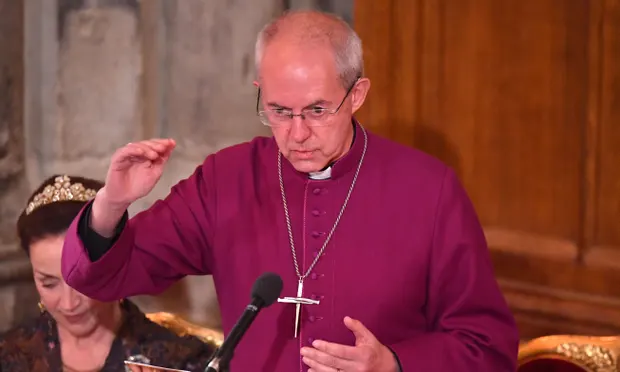The Church of England has sparked controversy with its recent announcement of plans to allow couples who married in a civil ceremony to have their union blessed in church, but not to conduct same-sex marriages. This proposal, which was endorsed by bishops this week, will be put to the C of E’s governing body, the General Synod, next month.
The C of E stated that it would “offer the fullest possible pastoral provision without changing the church’s doctrine of holy matrimony.” Same-sex couples would still be barred from getting married in a C of E church, but they could have a service in which there would be prayers of dedication, thanksgiving or for God’s blessing on the couple in church following a civil marriage or partnership.
The proposal has been met with mixed reactions, with some praising it as a step forward and others criticizing it as not going far enough. Stephen Cottrell, the archbishop of York, said the proposal was a “real step forward, something really important” and acknowledged that it fell short of same-sex marriage.
Critics argue that the C of E’s position causes immense harm to LGBTQ+ people and is out of step with public opinion. Steven Croft, the bishop of Oxford, who recently went public in his support for equal marriage, said he was “disappointed, as many others will be, that we’ve not been able to find a consensus to remove the barriers to marriage in C of E churches.”
C of E bishops will also review the ban on clergy having same-sex civil marriages, and the requirement for clergy in same-sex relationships to be celibate. Bishops will issue an apology later this week to LGBTQ+ people for the “rejection, exclusion and hostility” they have faced in churches and the impact this has had on their lives. The proposal came out of several meetings by bishops in recent months, which were the culmination of six years of consultations and discussions on same-sex marriage within the church.

